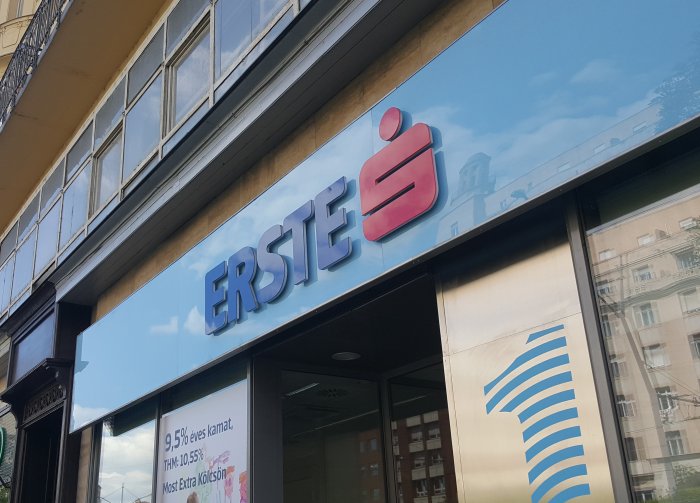ESG a Must-have for big Players, With a Range of Benefits for SMEs

Gergely Ferenczi
ESG considerations and sustainability are gaining increasing traction in the business world, both internationally and in Hungary. What makes ESG so important? What opportunities does it represent for businesses? What are the risks of failing to consider it in the short-, medium- and long-term? The Budapest Business Journal speaks with Gergely Ferenczi, director of Opten’s Company Information Division.
BBJ: What are the origins of ESG?
Gergely Ferenczi: ESG has become mainstream in recent years, but it developed several decades ago. Decision-makers in developed countries have been considering ESG since the late 1980s, although then it was referred to as sustainable development. The acronym itself comes from the world of investment because it was investors who first demanded to see frameworks that prioritized future-proofing and sustainability. Another significant milestone was the UN’s 2006 initiative to get investment companies to compile a set of criteria against which businesses could be evaluated. These included not just sustainability but also social activities and how corporate governance was set up. Today, these factors have become essential, reflected in the fact that the business world and consumers have also developed an interest in them.
BBJ: How far have Hungarian companies progressed?
GF: The largest companies, especially publicly traded ones, are under particular scrutiny in this respect. They can be dropped from investment funds, which they obviously want to avoid. It is also increasingly evident that retail customers want to make sure they invest their money in companies that prioritize ESG. These large businesses have to publish their accounts transparently and are evaluated on them by the big rating companies because their stocks are widely traded.
Hungarian companies that have a multinational parent also take ESG seriously. Many MNCs publish annual reports, typically in languages other than Hungarian, and the Hungarian company makes up one chapter of these reports if that. Sometimes, only aggregate data is published. There is still much room for improvement because statutory regulations will soon start applying to companies that employ more than 500 people and then to those with a headcount above 250. This change will come relatively soon due to the CSR Directive. This means Hungarian companies will have to start focusing on ESG even if they don’t have a foreign parent company that already requires this of them. Our data shows these companies currently have less interest in and commitment to the topic than those with multinational connections.
BBJ: What is the key to piquing their interest?
GF: I see two ways to reach Hungarian SMEs and incentivize them to consider ESG. One is regulation: strict requirements must be introduced as soon as possible. It will take a while, however, for the direct impact of these to be felt by Hungarian SMEs. Large companies that employ more than 500 people will have to report on their 2024 financial year in 2025, and those with more than 250 following suit a year later. Regulations for SMEs could only be introduced in Hungary sometime after that.
BBJ: What is the alternative?
GF: The other way is to influence companies through their wallets. ESG factors have a tangible impact on financing, profitability and growth. Since 2022, the so-called taxonomy regulation requires banks to rate companies based on ESG metrics for financing or investment arrangements. The European Central Bank and the National Bank of Hungary (MNB) set this requirement. The MNB is really strong in this area, with outstanding experts working on the issue. Simply put, a business that prioritizes ESG may find it cheaper to obtain credit than one that pays less attention to these considerations. In time, this competitor may find it impossible to attract external capital.
BBJ: Can SMEs disregard ESG?
GF: Deprioritizing ESG might not have an impact in the short term, but it definitely will in the medium- and long-term. Take a Hungarian company that supplies a German firm. There is a requirement in Germany that all businesses must assess the ESG metrics of their suppliers. If our Hungarian supplier fails to meet these criteria, they will lose business sooner or later. So, there is indirect pressure. ESG is also very important from a human resources perspective.
BBJ: What do you mean?
GF: It is clear that young people today, when looking for their first or second jobs care not only about getting a decent wage and good career progression but also about their prospective employer’s track record on sustainability. A company that emphasizes ESG will be much more attractive to young job-seekers than one that disregards it. Messaging about ESG is crucial not only for marketing and business reasons but also for workforce retention.
BBJ: Full ESG compatibility can incur high costs. How can cash-strapped companies find the money and time?
GF: There is no need to rush into root-and-branch reform. It is sufficient to change the company’s outlook and shift to a practice where ESG factors are also considered when operational issues are being addressed. A business can start purchasing environmentally friendly and energy-efficient equipment in the course of its procurement activities or during an office refurbishment. That is an ESG-compatible action. The point is that operations should be planned and decisions made with these considerations in mind. It is also important to realize that ESG compatibility is not only about money. Considering HR, for example, improving the opportunities provided to younger colleagues or women can be a very important step.
ESG: How can a business check its progress?
Company information provider Opten launched the first Hungarian ESG index in January 2022. The index rates Hungarian businesses’ ESG activities based on more than 75 factors. The index provides separate scores for environmental, social and governance metrics to give as detailed a picture as possible of each company’s current status.
Opten has also created a free-to-use platform that companies can use to audit their own operations. By filling in a form, they can record their ESG activities and performance and use the results to improve their ESG index. The platform is now live, and as of this January, there is also an option to purchase an ESG report, which provides an automated online alternative to the legacy reporting service based on manual consulting.
All three solutions aim to empower Hungarian businesses to achieve a step change in ESG and thereby become more competitive, efficient and sustainable. For more information, visit esg.opten.hu
This article was first published in the Budapest Business Journal print issue of February 10, 2023.
SUPPORT THE BUDAPEST BUSINESS JOURNAL
Producing journalism that is worthy of the name is a costly business. For 27 years, the publishers, editors and reporters of the Budapest Business Journal have striven to bring you business news that works, information that you can trust, that is factual, accurate and presented without fear or favor.
Newspaper organizations across the globe have struggled to find a business model that allows them to continue to excel, without compromising their ability to perform. Most recently, some have experimented with the idea of involving their most important stakeholders, their readers.
We would like to offer that same opportunity to our readers. We would like to invite you to help us deliver the quality business journalism you require. Hit our Support the BBJ button and you can choose the how much and how often you send us your contributions.










